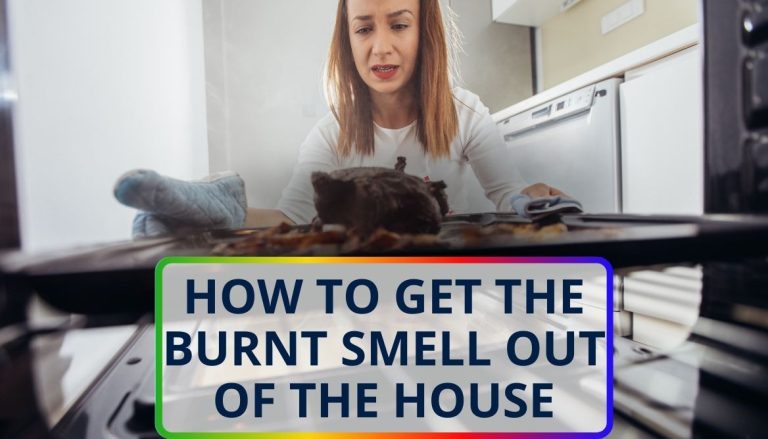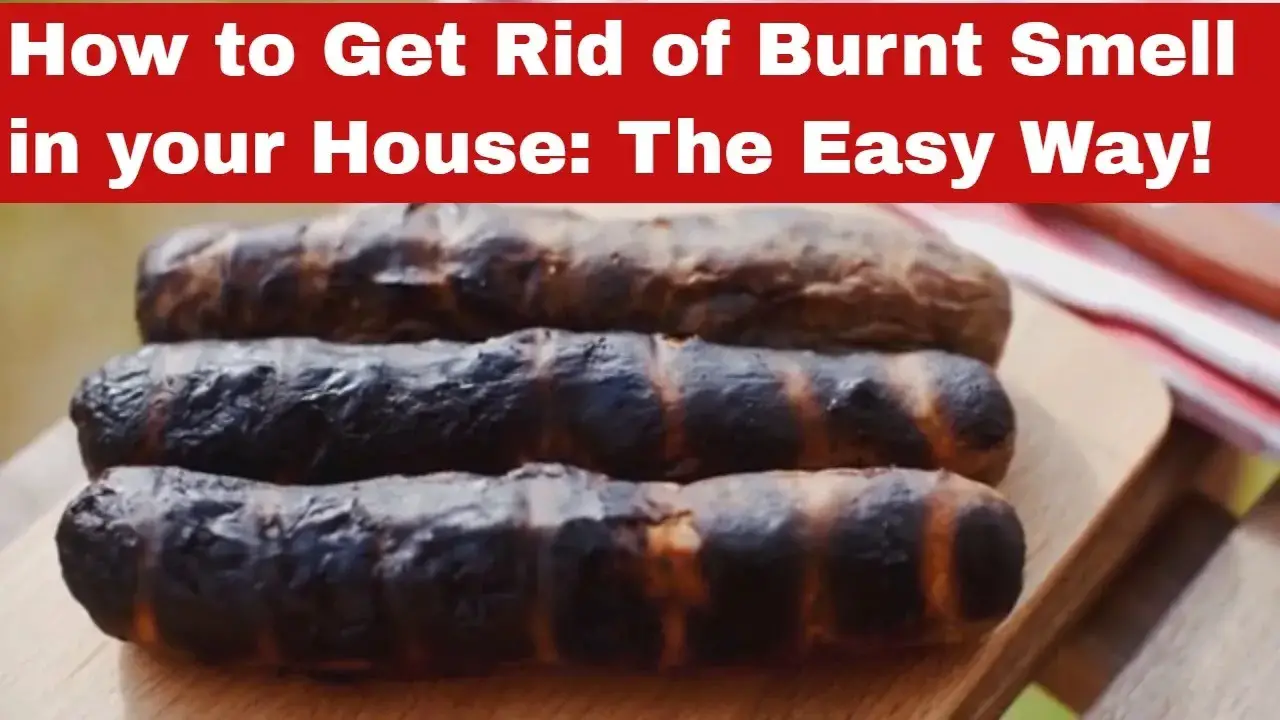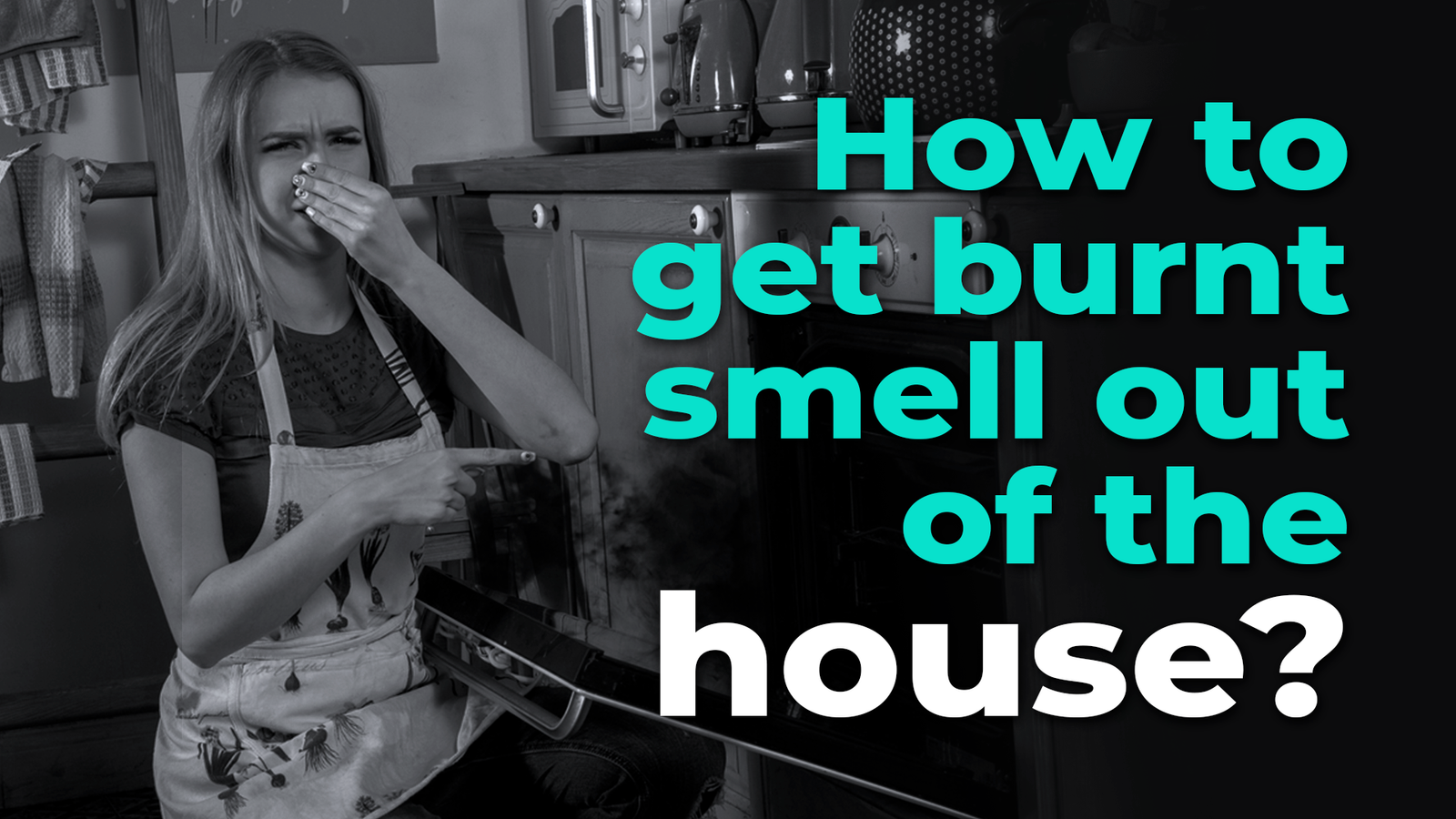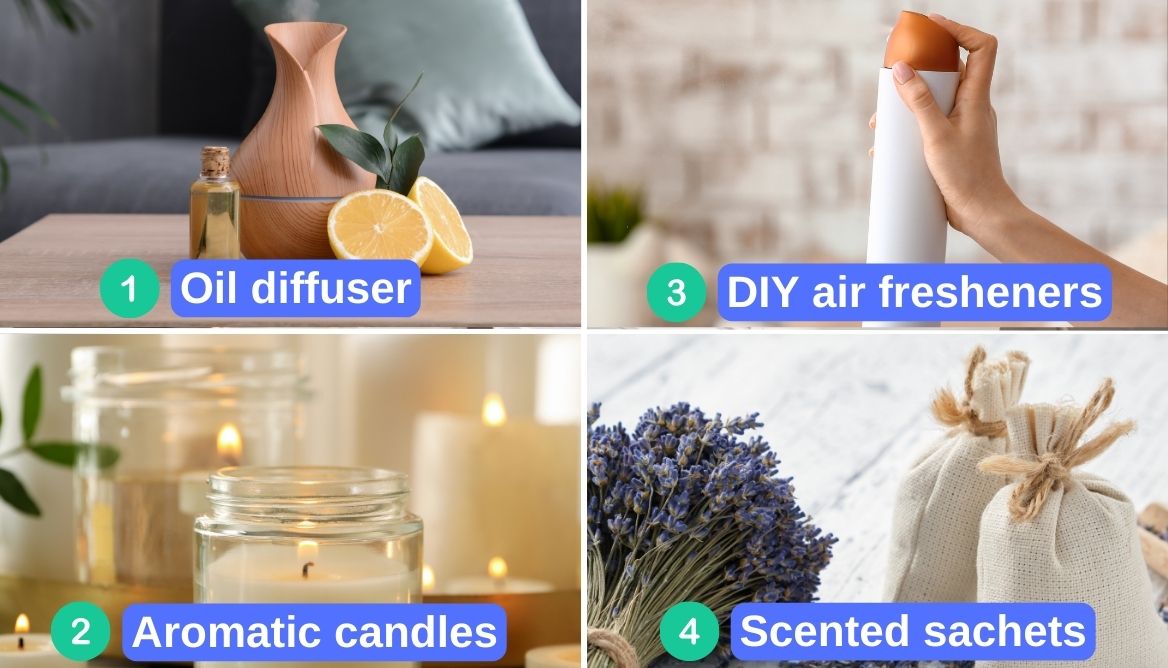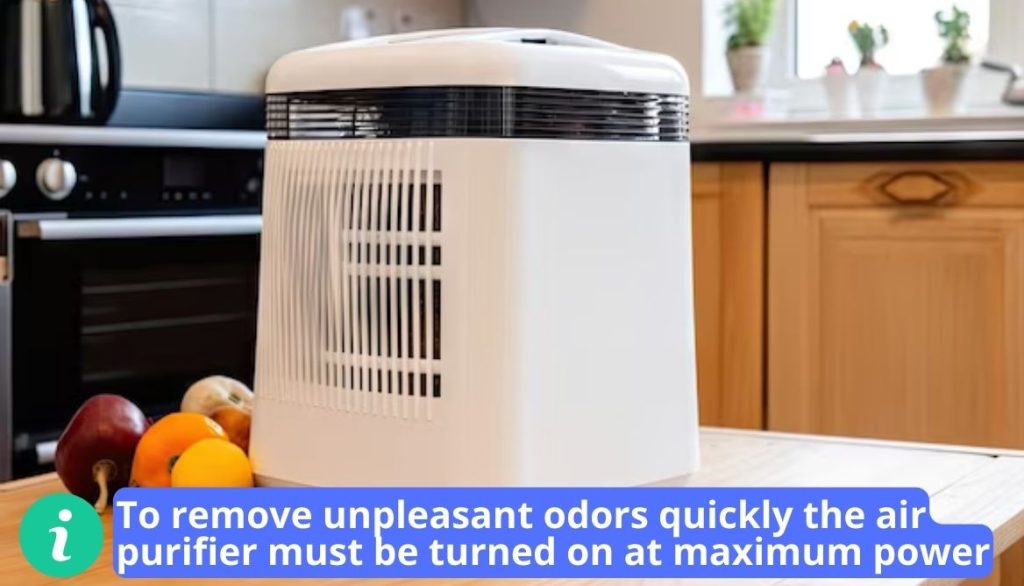How To Get Rid Of Burnt Smell In A House
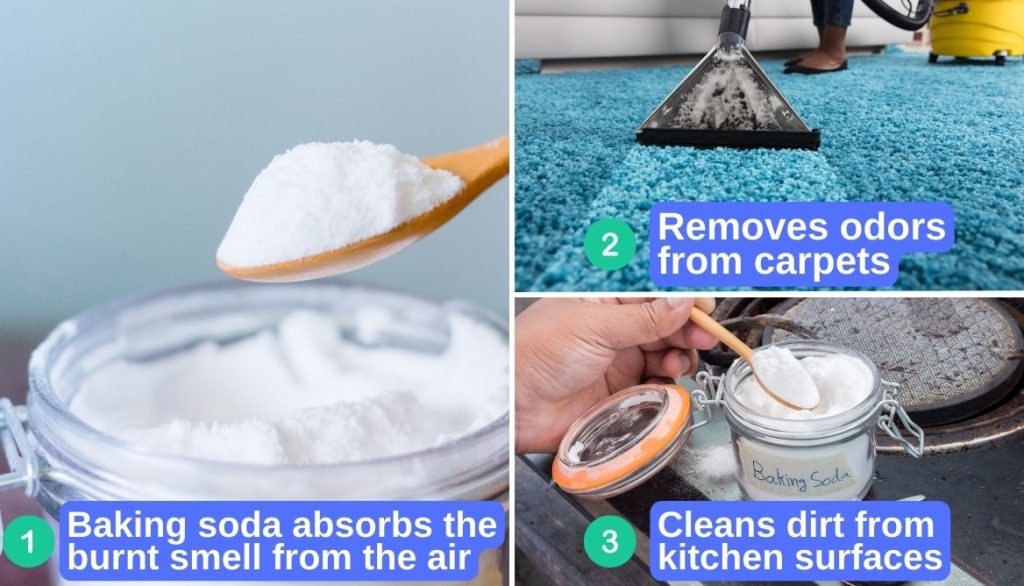
That acrid, lingering smell of burnt food. We've all been there. Maybe you forgot a pan on the stove, or perhaps a casserole bubbled over in the oven. Whatever the cause, getting rid of that burnt smell can feel like a Herculean task. But don't despair! With a methodical approach and some common household items, you can usually banish that unpleasant odor. This guide will walk you through the steps, helping you diagnose the source, implement DIY solutions, and know when it's time to call in the professionals.
Step 1: Immediate Action is Key
The moment you detect the burnt smell, immediate action is crucial. The longer the smell lingers, the harder it will be to remove.
1.1. Identify and Eliminate the Source
First and foremost, find the source of the burning. This might seem obvious, but take a moment to carefully check the following:
- Stove and Oven: The most common culprits. Turn off the heat source immediately. If it's the oven, avoid opening the door right away as this can release more smoke and potentially reignite the burning.
- Toaster and Toaster Oven: Unplug the appliance and carefully remove any burnt toast or food debris.
- Microwave: Open the microwave and remove any burnt food.
- Fireplace: If you have a fireplace, ensure the fire is completely extinguished and the flue is open to vent out any lingering smoke.
- Electrical Outlets and Appliances: If you suspect an electrical issue, immediately turn off the circuit breaker for that area and call a qualified electrician. Do not attempt to handle any electrical issues yourself!
Once you've identified the source, carefully dispose of the burnt item. Place it in a sealed bag and take it outside immediately to prevent the smell from spreading further.
1.2. Ventilate the Area
Next, maximize ventilation to flush out the smoky air. Open all windows and doors in the affected area and surrounding rooms. If you have exhaust fans in your kitchen or bathroom, turn them on to draw out the stale air.
Consider using a fan to circulate the air and direct the smoke outdoors. Place the fan near an open window, facing outward, to help expel the odor.
Step 2: DIY Odor Neutralization Techniques
Now that you've addressed the immediate problem and ventilated the area, it's time to tackle the lingering burnt smell. Here are some effective DIY odor neutralization techniques you can try:
2.1. Simmering Solutions
Simmering solutions are a classic and effective way to combat unpleasant odors. The steam helps to carry away the burnt smell and replace it with a more pleasant aroma. Here are a few options:
- Vinegar: Fill a pot with water and add a cup of white vinegar. Simmer on low heat for an hour or two. The vinegar smell will dissipate quickly, taking the burnt odor with it.
- Citrus Peels: Combine water with citrus peels (orange, lemon, grapefruit) and simmer for a few hours. The citrus fragrance will freshen the air.
- Spices: Simmer water with cinnamon sticks, cloves, or other aromatic spices.
- Coffee Grounds: Simmer water with used coffee grounds. The coffee aroma can help mask the burnt smell.
Always keep a close eye on simmering pots and add water as needed to prevent them from boiling dry.
2.2. Baking Soda Absorption
Baking soda is a natural odor absorber. Place bowls of baking soda in the affected area. You can also sprinkle baking soda on carpets, upholstery, and other surfaces that may have absorbed the burnt smell. Let it sit for several hours or overnight, then vacuum it up.
For stubborn odors in the refrigerator or freezer (if the burnt smell originated there), place an open box of baking soda inside.
2.3. Activated Charcoal
Activated charcoal is another excellent odor absorber. Place bowls of activated charcoal around the room, or use activated charcoal filters in your air purifier.
2.4. Air Fresheners and Essential Oils (Use with Caution)
While air fresheners and essential oils can mask odors, they don't actually eliminate them. Use them sparingly and in conjunction with other odor neutralization techniques. Choose scents that are fresh and clean, rather than heavy or overpowering.
Be mindful of allergies and sensitivities when using air fresheners or essential oils. Some people may be sensitive to certain fragrances.
Step 3: Deep Cleaning Affected Surfaces
Burnt smells can cling to surfaces, so deep cleaning is essential to fully eliminate the odor. Pay particular attention to the following areas:
3.1. Walls and Ceilings
Wash walls and ceilings with a solution of warm water and mild dish soap. Use a sponge or microfiber cloth and work in small sections. Rinse with clean water and dry thoroughly.
For stubborn stains or odors, you can add a small amount of vinegar or baking soda to the cleaning solution.
3.2. Countertops and Cabinets
Clean countertops and cabinets with a suitable cleaner. For greasy residue, use a degreaser. Wipe down all surfaces thoroughly and dry with a clean cloth.
3.3. Carpets and Upholstery
Vacuum carpets and upholstery thoroughly to remove any lingering soot or debris. If the burnt smell is particularly strong, consider using a carpet cleaner or upholstery cleaner. Follow the manufacturer's instructions carefully.
You can also sprinkle baking soda on carpets and upholstery, let it sit for several hours, and then vacuum it up.
3.4. Fabrics and Textiles
Wash all fabrics and textiles that may have absorbed the burnt smell, including curtains, bedding, and clothing. Add a cup of white vinegar to the wash cycle to help neutralize odors.
3.5. Air Vents and Filters
Clean or replace air vents and filters in your HVAC system. This will help to remove any lingering soot or odors from the air ducts.
Step 4: Persistent Odors and Professional Intervention
Despite your best efforts, sometimes the burnt smell just won't go away. This can be due to several factors, including:
- Hidden Sources: The burnt smell may be trapped in hard-to-reach areas, such as inside walls or under flooring.
- Severe Damage: If the fire or burning was extensive, the damage may be too significant for DIY solutions.
- Underlying Electrical Issues: If the burning was caused by an electrical problem, there may be hidden damage that needs to be addressed by a professional.
If you've tried all the DIY techniques and the burnt smell persists, it's time to call in the professionals. Here are some professionals who can help:
4.1. Fire Restoration Companies
Fire restoration companies specialize in cleaning and restoring homes after a fire. They have the expertise and equipment to remove soot, smoke, and odors from all surfaces. They can also identify and address any hidden damage.
4.2. Professional Cleaning Services
Professional cleaning services can provide deep cleaning of carpets, upholstery, and other surfaces. They may also have specialized equipment for odor removal.
4.3. HVAC Professionals
HVAC professionals can clean and inspect your HVAC system to ensure that it is free of soot and odors. They can also replace air filters and repair any damaged components.
4.4. Electricians
If the burning was caused by an electrical problem, an electrician can inspect your electrical system and make any necessary repairs. This is crucial to ensure your safety and prevent future electrical fires.
Step 5: Prevention is Better Than Cure
Once you've successfully eliminated the burnt smell, take steps to prevent it from happening again. Here are a few tips:
- Pay Attention While Cooking: Never leave cooking unattended, especially when using the stove or oven. Set timers to remind you to check on your food.
- Clean Appliances Regularly: Clean your stove, oven, toaster, and microwave regularly to prevent food buildup that can burn.
- Smoke Detectors: Install and maintain working smoke detectors throughout your home. Test them regularly and replace the batteries as needed.
- Fire Extinguisher: Keep a fire extinguisher in your kitchen and know how to use it.
- Be Careful with Candles: Never leave burning candles unattended. Keep them away from flammable materials.
By following these steps, you can effectively get rid of burnt smells in your house and prevent them from returning. Remember to prioritize safety and seek professional help when needed. A clean, fresh-smelling home is within your reach!
